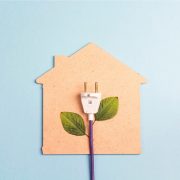Empathy for Enthalpy
We are all looking for ways to save money. Challenging our energy consumption thinking can really pay off.
Enthalpy, or the energy measured in thermodynamics, may seem a strange visitor to a discussion of your home’s energy consumption. But a brief breakdown of heating and cooling gains and losses will leave you well equipped to be a more energy-savvy consumer, and have a cleaner home, too.
Energy Consumption
It’s challenging to think of reducing energy consumption in the middle of summer’s heatwave. But there are small, individual choices we can make with great impact on our personal energy demand and the environment.
Problem: Rising population, rising cost of living, rising energy costs and consumption…Affects the environment.
“In the next 20 years…global energy consumption is expected to rise 40%”, according to The National Academies of Sciences, Engineering, Medicine.
According to the Academy of Natural Sciences of Drexel University (anspblog.org), how we use energy affects our environment. Toxic fumes and harmful byproducts are the unseen evils of energy production and consumption. As is stated in their article, “Reduce Your Household Energy Use”: “When we consume less power, we reduce the amount of toxic fumes released by power plants, conserve the earth’s natural resources, and help protect ecosystems from destruction… Cutting back on energy consumption reduces the amount of electricity that power plants have to make.”
Solution: Changes in how we think and use energy.
As individuals, we can be more aware of how we use the energy we consume by making optimal use of appliances:
Keep refrigerator at 36-38 degrees Fahrenheit, limiting frequency and duration of door opening.
When using oven and stovetop, make larger meals to afford leftovers for another day, requiring less energy to reheat.
Unplug technology including TV’s, chargers, small appliances when not in use.
Wash a full load of laundry in cold water, whenever possible.
Air dry laundry as much as possible, reducing the need for the dryer, the 5th most energy-consuming appliance.
Heaters, the most energy-consuming appliance, are responsible for over 30% of home energy use. Addressing poor insulation and gaps contributing to energy loss are the main ways to reclaim, lowering heating costs.
Cooling appliances account for about 10% of home energy consumption, also being affected by poor insulation and gaps, leading to loss of cooled air.
The state of your windows accounts for nearly 30% of potential heating and cooling losses. Dirty panes, debris, cracks and gaps, and broken weather stripping all contribute to higher energy consumption, as your heating and cooling must work harder to maintain a temperate environment.
Overall, a cleaner home, inside and out, increases the quality of air you breathe inside and outside your home. It also has a direct bearing on the efficiency of your home’s heating and cooling systems. Clean homes using clean, energy efficient appliances will work easier, saving you money as well as reducing energy consumption.
Professional House Washing protects your home from deterioration from elements, buildup of grime, bacteria, and fungus, which can work their way beneath your home’s exterior, ‘infecting’ and deteriorating the efficiency of your home’s energy.
Professional Window Cleaning likewise promotes better use of your home’s energy consumption. Clean windows allow more natural heat and light to enter your home, reducing incessant reliance on appliances and electric lighting.
There are many other appliances, electronics, and habits that affect your home’s energy consumption. While most of these depend on YOUR use and habits as a homeowner, why not depend on US to make the most of your heating and cooling energy expenditure, by scheduling a Professional House Wash and Window Cleaning Service.
With all of the “smart” technology available, let’s be smarter consumers, making better use of our energy consumption.





